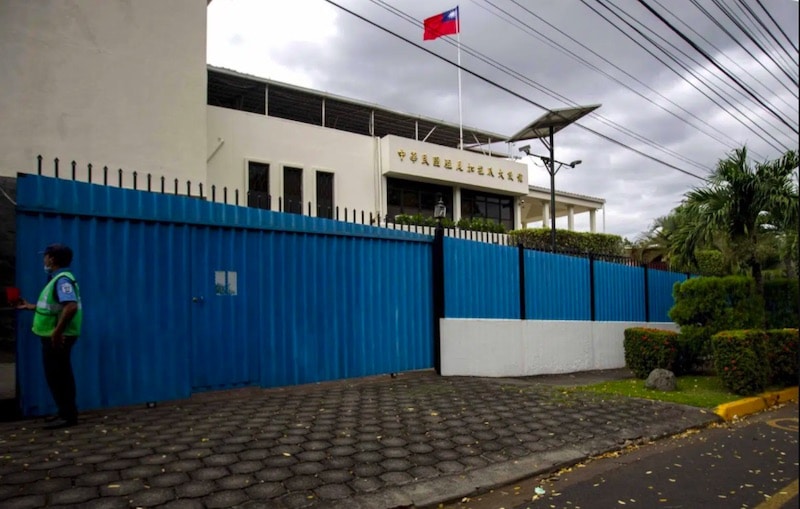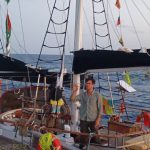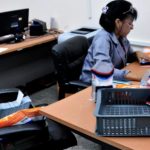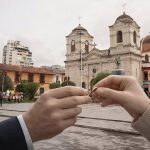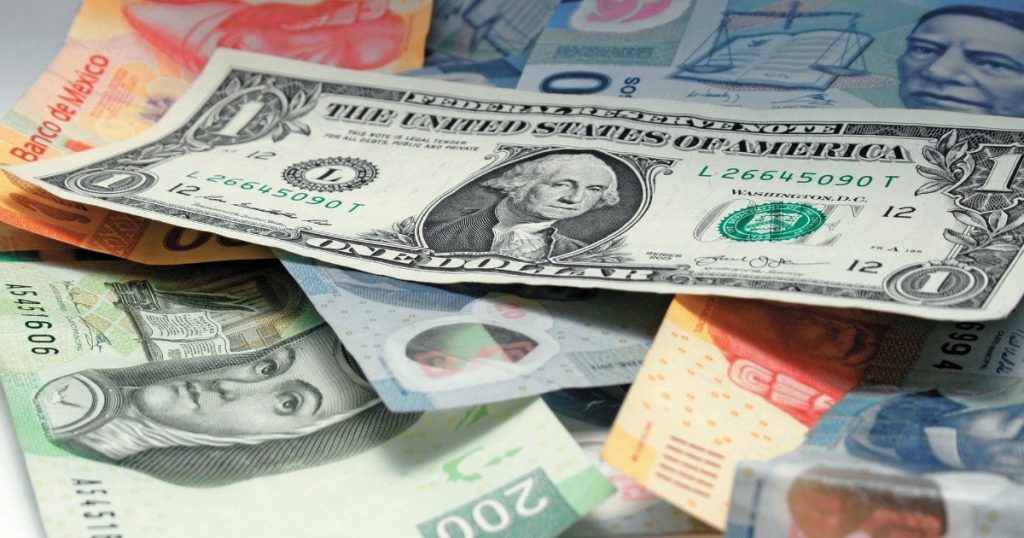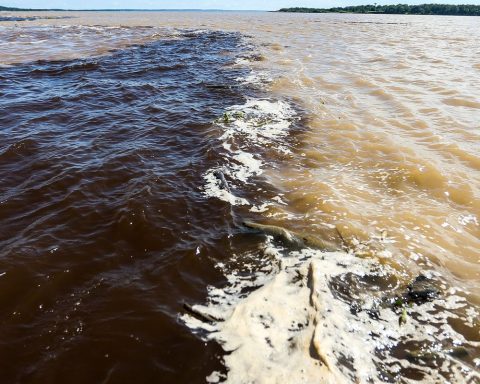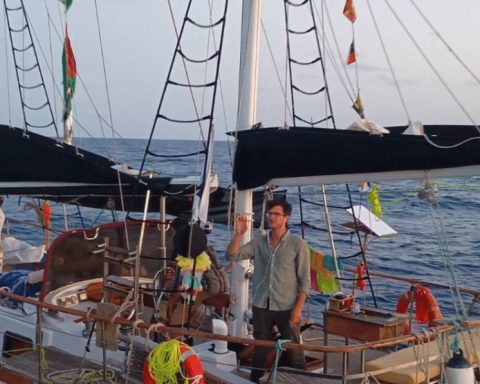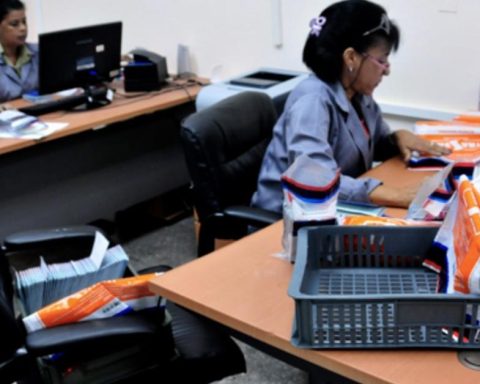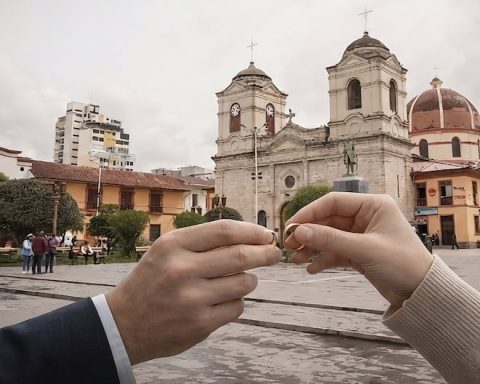The seizure of Taiwan’s diplomatic headquarters in Managua, carried out by the Nicaraguan Executive to deliver it to Mainland China, is classified as a “confiscatory, illegal, offensive and ignominious” act, by experts in international law.
Carlos Humberto Cascante Segura, professor at the School of Political Science of the University of Costa Rica, described this decision as illegal and explained that, in cases like this, a transition process is given way, in which Taiwan should be allowed “Order administrative-pecuniary matters, both on goods and local personnel that have been hired.”
According to Cascante, that was precisely what was done in his country in 2007, when the Government of Óscar Arias recognized Mainland China, which is what corresponds in these cases according to the rules of law.
“The correct thing is that the officials of Taiwan dispose of them (investments and other assets), following instructions of their Government, whether they sell them, donate them or any other possibility,” said Cascante.
This Sunday, December 26, through a press release from the Office of the Attorney General of the Republic (PGR), the Government of Daniel Ortega reported the decision to deliver the property to the People’s Republic of China, which he recognized last December 9, which caused a protest from Taiwan that denounced the illegality and called Managua’s “dictatorial regime”.
That twist in Taiwan’s speech, which had been questioned for being the donor more generous with Ortega Despite the complaints of serious human rights violations against Nicaraguan citizens, it is considered an expected attitude, says Cascante, who explains that the narrative of that Asian country has been based on contrasting the democracy they represent against the autocracy of the People’s Republic.
“In this they are very pragmatic. As long as the relationship with Managua was maintained, they would not have expressed that concept, “added the Costa Rican expert.
In its statement this Monday, the Department of Latin American and Caribbean Affairs of the Ministry of Foreign Affairs of Taiwan denounced that the appropriation of real estate by the Ortega regime obstructs the “symbolic sale” (donation) that it had made to the Archdiocese of Managua, which had been agreed by both parties on December 22 and notarized by local lawyers.
Among the details published by Taiwan about the transaction, on its Twitter account this Monday, December 27, is that they had sold their old offices in Managua for one dollar to the Archdiocese of Managua. “After the Ortega regime ordered Taiwan to leave Nicaragua before Christmas, we sold the embassy to the Archdiocese of Managua. This charitable act was our goodwill to the people. But Ortega seized the property and will gift it to #PRC. This is illegal and absolutely disgusting. “says the tweet signed at the end with the initials JW, that is, it was written by Foreign Minister Jaushieh Joseph Wu.
After the Ortega regime ordered #Taiwan out of #Nicaragua before #Christmas, we sold the embassy to Managua Archdiocese for $ 1. This charitable act was our goodwill to the people. But Ortega seized the property & will gift it to the #PRC. This is unlawful & utterly disgusting. JW https://t.co/vVo1Ks5ZkQ pic.twitter.com/wY5cGSBuzM
– 外交部 Ministry of Foreign Affairs, ROC (Taiwan) ?? (@MOFA_Taiwan) December 28, 2021
The Catholic Church in Nicaragua has so far not declared itself as an institution after the government decision to prevent the donation. In accordance with its approach, Taipei described those of the People’s Republic of China and Nicaragua as “malicious actions”, while denouncing the unusual 13-day deadline set by Ortega, with a maximum of December 23, for embassy staff to meet withdraw from the country.
Procedures violated: Step-by-step confiscation
A former Nicaraguan diplomat, consulted on condition of anonymity for security reasons, explained that Ortega’s decision is confiscatory of assets that could well be claimed by China Popular, “but that it is not the responsibility of the Nicaraguan government to appropriate or assign them To thirds”.
This expert explained that, when diplomatic ruptures are agreed, it is usual that prudential periods are agreed to solve pending issues and a third country could also have been sought to take charge of Taiwan’s affairs, as established in the article 45 of the Vienna Convention, which has governed the relationship between the two States as a practical norm.
According to this norm, Nicaragua has the obligation to protect the assets of the mission premises, even when an armed conflict is involved, and was also able to establish custody of the mission premises to a third State acceptable to Taiwan, the same that the protection of their interests and those of their citizens, which in this case did not happen.
“The way in which the Ortega regime has acted with Taiwan, in relation to the assets and interests of its diplomatic mission, is also offensive and ignominious, not even allowed in the event of an armed conflict, as recognized by the Vienna Convention. It is evident that this last decision has had an influence on the desire of the dictatorship to prevent the property of the diplomatic mission (Taiwanese) from passing into the hands of the Archdiocese of Managua, as revenge for the positions that the Catholic Church has maintained against the serious political crisis that the country has been experiencing since April 2018 ”, explained the Nicaraguan expert.
Former Torrijos adviser backs Ortega’s decision
For the international analyst Julio Yao, former advisor to General Omar Torrijos in Panama and former agent of Panama before the International Court of Justice, Taiwan’s assets were respected in countries where Mainland China was recognized, such as Costa Rica in 2007, Panama in 2017 and El Salvador in 2018.
However, in his opinion, the conduct of Taiwan against the sovereign should be evaluated and he recalled that in Panama Taiwanese officials “burned with a mixture of hatred and relish the national flag of Panama” and that of the People’s Republic of China.
Yao is of the position that the Vienna Convention is not applicable in the case of Taiwan and since People’s China is the “legitimate representative” before the United Nations (UN), local assets would become “their property” .
“In cases like this, where a definition of the rights of Taiwan and China is required, I suggest that Nicaragua submit a request for an advisory opinion to the International Court of Justice in The Hague so that its magistrates clarify this important point of International Law. . Taiwan cannot participate, because it is not a member of the UN or a signatory to the Vienna Convention (1961), unless they can prove that they accepted the jurisdiction of the Court on the exclusive behalf of Taiwan ”, he argued in a questionnaire answered to CONFIDENTIAL.
According to Yao, Taiwan did the right thing by not ruling on the human rights violations committed by the Nicaraguan Executive, which it interprets as meddling in internal affairs.
However, the international community in general has denounced Ortega’s disrespect for the civil rights of citizens, which the Sandinista leader has described as “interventionism” to avoid responding to the abuses, including some classified as crimes against them. humanity by international organizations.
The break with Taiwan comes amid the condemnation of the Organization of American States (OAS) for the repression and after Ortega’s illegitimate reelection last November, after the elimination of electoral competition as a consequence of the imprisonment of the main opposition leaders and the control of electoral power.
Yao referred to none of these points and urged Taiwan to abandon its alliance with the United States, because “it endangers the entire planet.”
